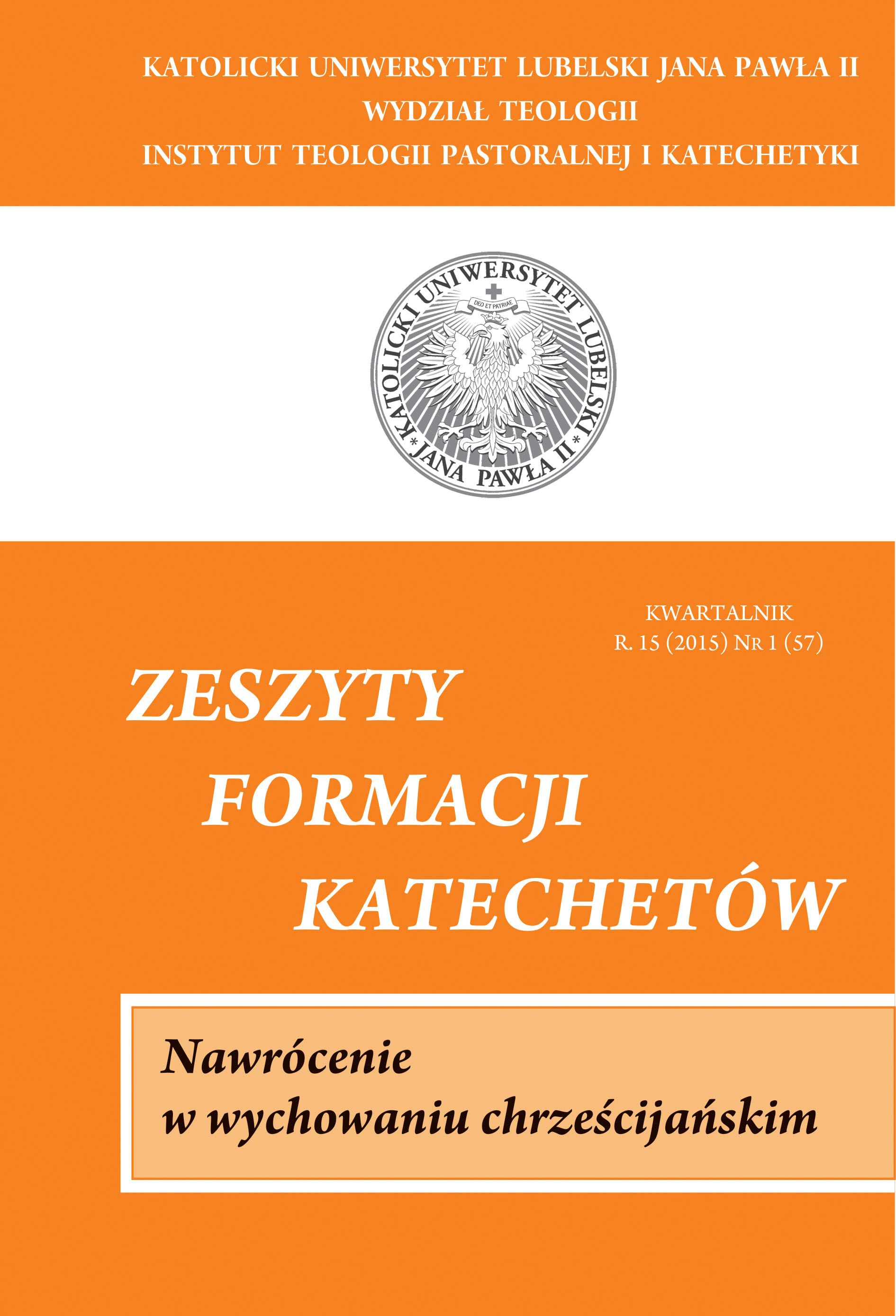Conversion in the process of Christian upbringing
Keywords:
conversion, upbringingAbstract
The author analyzes the pastoral program for the year 2014/15 “Repentand believe in the Gospel”, which draws attention to a mature faith in building a deep relationship with God by repenting and discovering the mystery of sinin order to experience God's mercy in the sacramentof reconciliation and penance. Reconciliation brings joy and hope,anda renewed missionary zeal. The word “conversion”in biblical language means “turning away from evil and turning to God”.Repentance lies in thenature of the Church, which constantly needs purification, undertakes penance and makes attempts to renew itself. In the exhortation“On Reconciliation and Penance”John Paul II calls the Church “the great sacrament of reconciliation”.Conversion refers to a single person,but also to acommunity of the faithful. The transformation is not the result of human efforts, butthe result ofa meetingwith the wordof God.Theword of God guides man to a new life in accordance with God's will and one’s vocation.The first conversion is realized in the sacrament of baptism; it is atransition from the state of unbelief to faith.Each subsequent conversion taking place in the Christian life needs prior proclamation and acceptance of the biblical message of salvation, containing the promise of salvation and calling man to accept faith and live his life withGod, who is love. In each conversion, which culminates in the confession and reception of Holy Communion, we can identify some stages: getting to know God, getting to know ourselves, sending on a mission,staying in the Church.Conversion means that we become open to God's mercy, and recognize our guilt and frailties. The process of constant conversion needs formation, because a person that is inwardly transformed can create a more humane world in the spirit of Christ’s Gospel. This daily conversion results in the continual rebirth of our love for God.
References
Ambroży, List I do siostry 12,tłum. P. Nowak, Warszawa 2012.
Haręzga S., Nawrócenie w świetle i mocy Słowa Bożego, w: Nawracajcie się i wierzcie w Ewangelię przez Chrystusa, z Chrystusem, w Chrystusie. Przez wiarę i chrzest do świadectwa. Program duszpasterski Kościoła w Polsce na lata 2013-2017, Poznań 2014.
Kluz M., Ocalenie w niemodnym słowie „nawrócenie”, http://www.currenda.diecezja.tarnow.pl/archi-wum/2008/01/art-43.php.
Komisja Duszpasterstwa Konferencji Episkopatu Polski, Nawracajcie się i wierzcie w Ewangelię. Przez Chrystusa, z Chrystusem, w Chrystusie. Przez wiarę i chrzest do świadectwa. Program dusz-pasterski Kościoła w Polsce na lata 2013-2017, Poznań 2014.
Ratzinger J., Nowa ewangelizacja, http://www.opoka.org.pl/biblioteka/W/WR/inne/ratzinger_ewangelizacja.html.12
Ratzinger J., Nowa pieśń dla Pana. Wiara w Chrystusa a liturgia dzisiaj, Kraków 2005.
Ratzinger J., W dzień Pięćdziesiątnicy, Kraków 2006.
Salij J., Szukającym drogi, http://mateusz.pl/ksiazki/js-sd/Js-sd_19.htm.
Śliwiński P. J., Sakrament pokuty w świecie postindustrialnym, w: Nawracajcie się i wierzcie w Ewangelię przez Chrystusa, z Chrystusem, w Chrystusie. Przez wiarę i chrzest do świadectwa. Program duszpasterski Kościoła w Polsce na lata 2013-2017, Poznań 2014.
Downloads
Published
How to Cite
Issue
Section
License
Copyright (c) 2015 KATECHISTS' PERIODICAL

This work is licensed under a Creative Commons Attribution-NonCommercial-NoDerivatives 4.0 International License.

